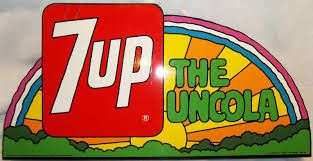by Jeff Cody
When I was a kid, 7up had an ad campaign that was very popular. They billed themselves as "The Uncola." Do you remember that? So today, I'm channeling that 7up ad and I'm going to bill myself as "The Un-Advisor" and here's one reason why.
When it comes to saving for college, most agents, advisors, investment sales people, banks, financial institutions, and certified financial advisors all recommend basically three products, which are 529 plans, UTMAs, and UGMAs. So, let me define each of these products so you have a full understanding of my message.
529 college savings plans are from section 529 of the tax code, they are QTPs (qualified tuition plans) which allows for tax-advantaged savings for education expenses. These plans, often called 529 plans, are sponsored by states or educational institutions and offer tax-deferred growth on earnings, which can be withdrawn tax-free if used for qualified education expenses. They are commonly used for college but can also be used for qualified K-12 expenses, apprenticeships, and student loan repayments (up to a limit).
UGMA, or the Uniform Gifts to Minors Act, is a law that allows adults to transfer assets like cash, stocks, and bonds to a minor child's account without setting up a formal trust. UTMA, or the Uniform Transfers to Minors Act, which is a law that allows for custodial accounts for minors to hold and manage gifts of a broad range of assets, such as cash, real estate, and securities. Both have an adult custodian, such as a parent or grandparent, manages the account for the child's benefit until they reach the age of majority, which varies by state, typically between 18 and 21. Once the child reaches that age, they gain full control of the assets, meaning, the kid can spend the money any way they see fit and there's nothing legally you can do about it.
The main difference between UGMA and UTMA accounts is the types of assets they can hold: UGMA accounts are limited to financial assets like cash, stocks, and bonds, while UTMA accounts are broader and can hold physical assets like real estate, artwork, and vehicles in addition to financial assets. Once again, both are custodial accounts that allow an adult to manage assets for a minor, and the assets become the child's property at the age of majority.
So, after all that, why am I billing myself as "The Un-Advisor?" Here's why: Every dollar you have in a 529 plan, an UGMA, or an UTMA actually counts AGAINST you when it comes to getting discounts at colleges. Did your advisor mention that to you? Isn't that like being penalized for trying to do the right thing and take care of your family?
Register for and attend our free educational workshop on college affordability! Just go to https://collegeplusretirement.com/workshops to learn more and register.

